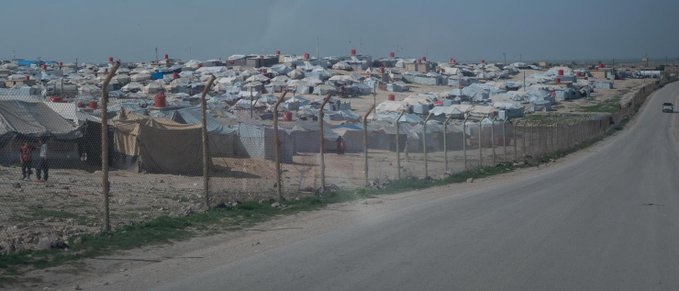
However, the true number of people affected by COVID-19 is believed to be much higher as people continue to struggle to access testing and health care. The response remains drastically underfunded and plans for vaccinating frontline health workers and the population remain vague.
“It is shocking that one year into the outbreak, the region of Northeastern of Syria still struggles to find the essential COVID-19 supplies,” said Crystal Van Leeuwen, MSF medical emergency manager for Syria. “There is a clear lack of laboratory testing, inadequate hospital capacity to manage patients, not enough oxygen to support those who need it most and limited availability of personal protective equipment (PPE) for health workers.”
In the two COVID-19 hospitals that MSF supports in the region, in Hassakeh and Raqqa, medical teams have seen a sharp increase in confirmed cases in the past month, including among health workers. With a PCR test positivity rate as high as 47 percent, it is clear that many cases have gone unidentified due to limited testing capacity in the region.
There is currently no United Nations cross-border mechanism place for Northeastern Syria, which means that UN agencies cannot deliver aid to the area without the permission of the Syrian government. This creates supply challenges for Damascus-based organizations, such as World Health Organization, and leaves the region woefully underserved, said MSF.
The only laboratory in the region that can test for COVID-19 is in Qamishli. It is currently experiencing critical shortages of supplies—two weeks from now, there will be no PCR testing capacity in the region unless further supplies arrive. MSF has donated testing supplies to Qamishli laboratory on four occasions since the start of the pandemic to prevent imminent stock-outs and ensure continuity of PCR testing.
At least two COVID-19 treatment centers in Hassakeh and Raqqa have stopped activities after running out of funds and medical supplies, linked to lack of a long-term funding planning by humanitarian organizations and challenges in supply lines. Many unsupported hospitals are raising alarms and requesting basic but essential support for items like oxygen, antibiotics, and PPE to be able to cope with the increasing numbers of patients with COVID-19.
While many frontline health workers across the globe have received their first vaccine to protect them against COVID-19, vaccination plans in northeastern Syria have fallen between the cracks, with vague promises and insufficient planning. Local authorities report that they have been promised just 20,000 vaccines for an area that hosts five million people, and it remains unclear if those vaccines will even arrive.
Source: MSF







